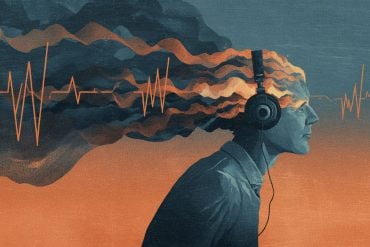Summary: A new study highlights the long-term impact of chronic ear infections on children’s language development. The study reveals that repeated, temporary hearing loss caused by ear infections can lead to deficits in auditory processing and language skills later in life.
Children with a history of multiple ear infections before age three were found to have smaller vocabularies and difficulty with sound recognition and speech-related tasks. The research emphasizes the importance of monitoring children’s hearing health and seeking early treatment to mitigate language development issues.
Key Facts:
- Chronic ear infections in early childhood can result in temporary hearing loss, affecting language development and auditory processing skills in later years.
- Children with a history of recurrent ear infections before age three may exhibit smaller vocabularies and difficulty recognizing changes in sounds.
- Monitoring children’s hearing health and seeking prompt treatment can help prevent language deficits and support healthy language acquisition.
Source: University of Florida
Ear infections are a common childhood experience, but a new study suggests parents should take these infections seriously to preserve their children’s language development. That’s because each ear infection can potentially impair hearing with fluid building up behind the eardrum.
New research from University of Florida scientists reveals that when ear infections become chronic, this repeated, temporary hearing loss can lead to deficits in auditory processing and language development in children years later.

“Ear infections are so common that we tend to dismiss them as having no long-term effect. We should take all ear infections seriously,” said Susan Nittrouer, lead researcher and a UF professor of speech, language, and hearing sciences in the College of Public Health and Health Professions.
“Parents should be aware that their child may have some middle ear fluid without it being painful and work with their doctor to monitor their child closely.”
Nittrouer and Joanna Lowenstein, a researcher in the UF Health Clinical and Translational Science Institute, studied the auditory processing and language development of 117 children from ages 5 to 10 years both with and without a history of chronic ear infections in early childhood.
On average, children with several ear infections before three years of age had smaller vocabularies and a harder time matching similar sounding words than children with few or no ear infections. They also had difficulty detecting changes in sounds, a sign of problems in their brain’s auditory processing centers.
One takeaway, Nittrouer says, is for parents, physicians, and speech pathologists to continue monitoring children long after the last preschool earache fades away. Some language deficits may only reveal themselves in later grades.
“As children go through school, the language they’re required to use becomes more complex,” said Nittrouer.
Nittrouer and Lowenstein used three tests to assess language development and auditory processing. In one test, children had to detect which of three cute cartoon characters sounded different than the other two. This involved manipulating the patterns of loudness, or amplitude, change across time.
“The better you can recognize this change in amplitude across time, the better you’re going to be able to recognize the structure of speech,” said Nittrouer.
The second task asked children to name pictures presented to them, a measure of their vocabulary size. Finally, children were asked to match words based on whether they began or ended with the same speech sound, a task essential not only to speech development but also to reading acquisition.
Treating ear infections early can help prevent the fluid buildup that hurts language development, according to Nittrouer. If ear infections are common and fluid does build up, tubes placed temporarily in the eardrum can help drain the fluid and restore hearing, which should lead to less risk of delay in the development of the central auditory pathways and fewer problems acquiring language.
The researchers published their findings in November in the International Journal of Pediatric Otorhinolaryngology. They plan to continue this research by including children at risk for delays in auditory development for other reasons, including premature birth.
About this language development and auditory neuroscience research news
Author: Eric Hamilton
Source: University of Florida
Contact: Eric Hamilton – University of Florida
Image: The image is credited to Neuroscience News
Original Research: Open access.
“Early otitis media puts children at risk for later auditory and language deficits” by Susan Nittrouer et al. International Journal of Pediatric Otorhinolaryngology
Abstract
Early otitis media puts children at risk for later auditory and language deficits
Background
Otitis media is a common disorder of early childhood suspected of hindering auditory and language development, but evidence regarding these effects has been contradictory. To examine potential sources of these contradictory past results and explore in more detail the effects of early otitis media on auditory and language development, three specific hypotheses were tested: (1) Variability in children’s general attention could influence results, especially for measures of auditory functioning, leading to spurious findings of group differences; (2) Different language skills may be differentially affected, evoking different effects across studies depending on skills assessed; and (3) Different mechanisms might account for the effects of otitis media on acquisition of different language skills, a finding that would affect treatment choices.
Method
Children 5–10 years old participated: 49 with and 68 without significant histories of otitis media. The auditory function examined was temporal modulation detection, using games designed to maintain children’s attention; two additional measures assessed that attention. Measures of lexical knowledge and phonological sensitivity served as the language measures.
Results
Sustained attention was demonstrated equally across groups of children with and without histories of otitis media. Children with histories of otitis media performed more poorly than peers without those histories on the auditory measure and on both sets of language measures, but effects were stronger for phonological sensitivity than lexical knowledge. Deficits in temporal modulation detection accounted for variability in phonological sensitivity, but not in lexical knowledge.
Conclusion
When experimental factors are tightly controlled, evidence emerges showing effects of otitis media early in life on both auditory and language development. Mechanism of effects on language acquisition appear to involve both delayed auditory development and diminished access to the ambient language.






